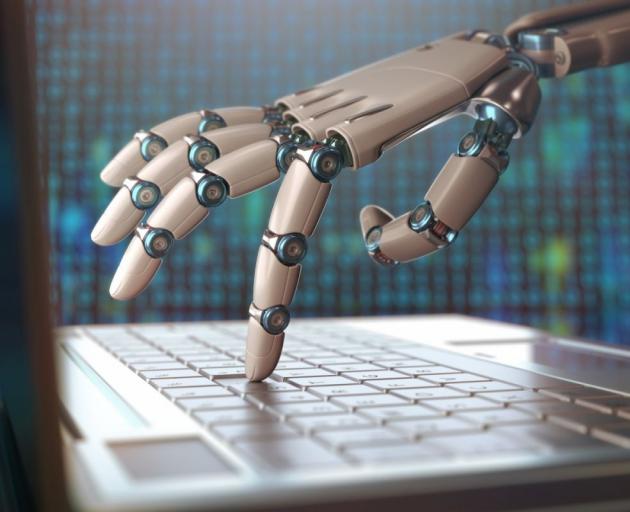
Despite countless stories in the media about the threat of "robot redundancy", a new survey has found most Kiwis don't see machines as a workplace worry.
The Massey University study found 87.5 per cent of respondents either disagreed or strongly disagreed with the statement "smart technology, artificial intelligence, robotics or algorithms could take my job".
"Despite experts like Bill Gates and Stephen Hawking warning about mass unemployment in the future, it seems very few New Zealanders are making any plans to change out of jobs that might disappear over the next five to 10 years," said study leader Dr David Brougham, of Massey's School of Management.
"It was interesting that those who most strongly denied the possibility of a machine doing their job were often from the sectors most at risk, like checkout operators, drivers and analysts. These are all areas where we can already see technology having an impact."
A storeroom assistant told him he believed machines wouldn't "affect my career at all" while a business support employee said: "We work in the service industry, robots are irrelevant."
"It was bizarre reading some of the interview quotes, but I guess ignorance can be bliss," he said.
"People think their jobs are harder than they actually are. Often jobs actually consist of a set of repetitive actions that can be codified and done by a robot.
"This applies to many jobs currently considered high skill, like accountants, lawyers and researchers. There is report-writing software now available that is practically flawless."
The study showed younger employees were generally more concerned about smart technology and automation than older employees.
Young people who were aware of the potential impact of technology also reported a significant drop in organisational commitment and career satisfaction.
The younger generation was "definitely" more concerned, he said.
"They are both more aware of the coming changes and more likely to care about the impact of those changes because they have a longer working life ahead of them.
"Realistically, if you are someone in your 60s you probably won't care if you are made redundant in five years because you are nearing retirement anyway."
However, those who weren't worried about job-killing robots might not be far off the mark after all.
Following a raft of concerning, headline-grabbing studies - including Oxford University research that found 47 per cent of all employment in the United States was at risk of being replaced by computers and algorithms in the next 20 years, and a recent Australian report putting the proportion of vulnerable jobs at 44 per cent - a new investigation has found this risk has been largely overblown.
The forensic study by the Organisation for Economic Cooperation and Development (OECD) found that, of the 21 advanced nations it looked at, only 9 per cent of jobs were "potentially automatable" - a dramatic difference.
"They looked at the tasks involved in each job and found that a lot of them couldn't be done by robots and software," said Dr Bruce MacDonald, a robotics expert at the University of Auckland.
While there was much modernisation of production across the manufacturing sector, along with industries like forestry and dairy farming, Dr MacDonald noted New Zealand was still bringing in farm workers from the Philippines as it couldn't find enough labour.
The Oxford study, from 2013, has been widely cited - most recently by two Northland clinicians who wrote in the New Zealand Medical Journal that AI would soon perform a significant amount of the diagnostic and treatment decision-making traditionally performed by doctors.
